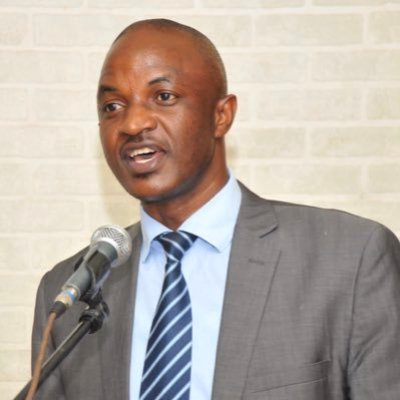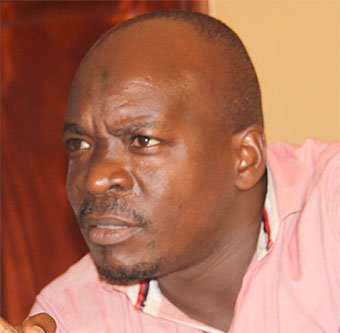Secretary to Treasury, Ramathan Ggoobi
The Ministry of Finance has issued the First Budget Call Circular for the 2025/26 national budget, with the total budget standing at Shs57.441Trn, down from the ambitious Shs72.136 Trillion 2024/25 budget.
According to the circular issued by Secretary to Treasury, Ramathan Ggoobi, Uganda Revenue Authority (URA) is expected to collect revenue to a tune of 33.182Trn, up from Shs31.982 trillion in FY 2024/25.
“The preliminary resource envelop for FY 2025/26 is projected amount to Shs57.441 Trillion that shall be sources as follows. Domestic revenue-Shs33.182Bn, Petroleum Fund-Shs500Bn, Budget support Shs30Bn, domestic borrowing-Shs4.011Trn, Project Support (External financing) Shs12.812Trn, Domestic refinancing Shs6.612Trn, while local revenue for local governments will amount to Shs293Bn,” read in part the 13th September 2024 document, that was only made public yesterday.
According to the preliminary figures, Government intends to spend Shs7.934Trn on the payment of salaries for all its staff, while Shs12.100Trn will go towards Non-Wage expenditures like rent, utilities, office items etc, and only Shs4.211Trn of the budget will go towards the critical development projects for Ugandans.
In the proposed allocations, Human Capital Development (Education and Health sectors) command the lion’s share of Shs9.394Trn, followed by Governance and Security-Shs7.634Trn, and Integrated Transport Infrastructure Shs6.354Trn.
The sectors with the least funding include; Mineral Development Shs25.55Bn, Mindset Change-Shs36.75Bn and Information, Technology Development Transfer- Shs168.01Bn.
There will be an increase in external debt repayment from the current Shs3.149Trn to Shs4.011Trn, which is a Shs882.5Bn increment.
According to the Secretary to Treasury, the Budget Circular is issued in accordance with Section 7(1) and (2)(a) and (b) of the Public Finance Management Regulations, 2016 for preparation of the Budget Framework Papers for FY2025/26 and the coming budget will run under the theme; “Full monetization of Uganda’s Economy through commercial agriculture, industrialization, Expanding and Broadening Services, Digital Transformation and Market Access”.
The Ministry of Finance further revealed that the main objective of next year’s budget is to shift the economic growth rate to a higher trajectory averaging over 8% per annum over the medium term, and double digit growth rates at the onset of commercial production of oil and gas, to expand the size of the economy tenfold from the current US$53Bn to US$500 Billion by 2040, with Ggoobi asking all Accounting Officers to only allocate resources to only critical interventions.
“You should focus the available funding on the critical interventions and Programmes that are essential to fulfilling your institution’s core mandate. Resources should be consolidated and directed towards interventions and activities that provide the highest multiplier effect, generate more public value and avoid spreading resources thinly across non-essential activities,” noted Ggoobi.
In the Circular, the Ministry of Finance has directed all Accounting Officers to budget for the Digital Number plates for all Government vehicles in the next budget, saying the move is intended to improve security and road safety in Uganda.
“Government is implementing the Intelligent Transport Management System (ITMS) project to enable the electronic tracking of vehicles through digital number plates as a security measure to combat crime. The ITMS Project will also improve road safety. You should, therefore, budget for the replacement of the number plates of all existing Government motor vehicles under your respective votes. All new Government vehicles will adopt the new digital number plates,” noted Ggoobi.
The Secretary to Treasury also revealed that in 2025/26, focus will be on completing the ongoing public project and limit taking on new projects owing to the findings in the Public Investment Plan Multi-year Commitment Report for 2024/25that revealed over commitment of the development budget by Government agencies.
“The report further reveals that MDAs thinly spread meagre resources over several ongoing projects leading to inability to finance project activities and hence failure to achieve objective outcomes. New projects shall only be admitted into the Public Investment Plan on a replacement basis and subject to availability of fiscal space. You are hereby urged to adequately budget and prioritize completion of the ongoing projects in order to free up fiscal specie for new projects,” wrote Ggoobi.
The Ministry of Finance issued a 7th November 2024 deadline within which Accounting Officers are required to prepare and submit their Budget Framework Papers for FY2025/26 to the Ministry of Finance through the Program Budgeting System to allow for analysis and consolidation of the National Budget Framework Paper ahead of its submission to Parliament at the end of the year.





